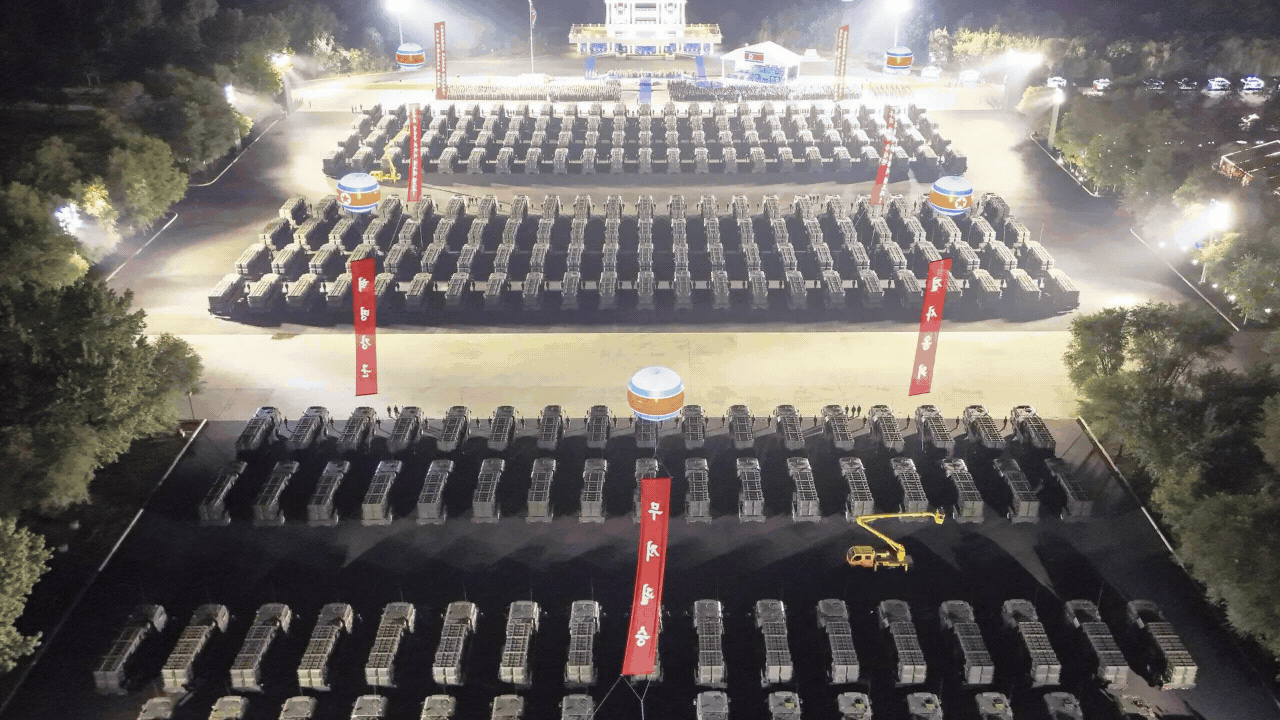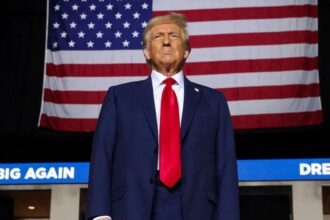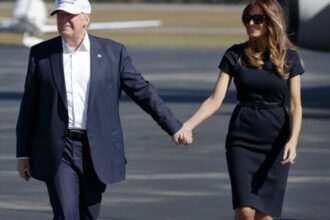A commissioning ceremony marked with cheering crowds and fireworks was held in Pyongyang on Sunday to transfer the new mobile launchers to frontline military units, the official Korean Central News Agency said.
“The rapidly changing global security environment and the indiscriminate expansion of US-led military blocs lead us to the conclusion that we need to more thoroughly and fully have our national nuclear capabilities and nuclear posture ready,” Kim was quoted as saying by KCNA.
Images released by state media indicate the launchers are capable of holding four missiles each and the systems appear to be used to fire off a short-range ballistic missile known as Hwasong 11D, weapons experts said. The missile has been tested at distances of between about 100 kilometers to 300 kilometers (62 miles to 186 miles), although it was uncertain whether North Korea has actually produced 1,000 of the missiles.
The launchers can be kept hidden and rolled out for quick-fire strikes to send missiles to large parts of South Korea and US bases there in a matter of minutes.
The deployments underscore Pyongyang’s threats to South Korea that are “both nuclear and especially conventional,” Vann Van Diepen, a former US government official, wrote in a May article for the 38 North Program.
The missiles are also part of systems that North Korea has put on display in recent months for possible use by Russia for its war on Ukraine, South Korean officials have said.
The US, South Korea and others have accused North Korea of sending massive amounts of artillery shells as well as its newest family of short-range ballistic missiles. Pyongyang and Moscow have denied the charges.
South Korea’s Defense Minister Shin Wonsik has warned Pyongyang may be considering a nuclear test near the US presidential election to raise its profile as Kim has been rolling out new warheads capable of striking the US and its allies in Asia. North Korea last tested a nuclear device in September 2017.
The weekend celebration took place as a North Korean northwestern region has been battling floods that are thought to have caused a “considerable human toll,” according to the South Korean government. North Korean media has not disclosed figures on fatalities.
South Korea has offered to provide humanitarian assistance over the disaster but Kim effectively declined the proposal, saying that enemies are enemies. Instead, Kim said Pyongyang would seek help from its “truest friends in Moscow” if any support is needed, KCNA reported.
The flood-hit area is a major producer of grain and any loss of cropland adds to food insecurity in a country where the United Nations World Food Program has said about 40% of the population is undernourished.
Source : Times of India






